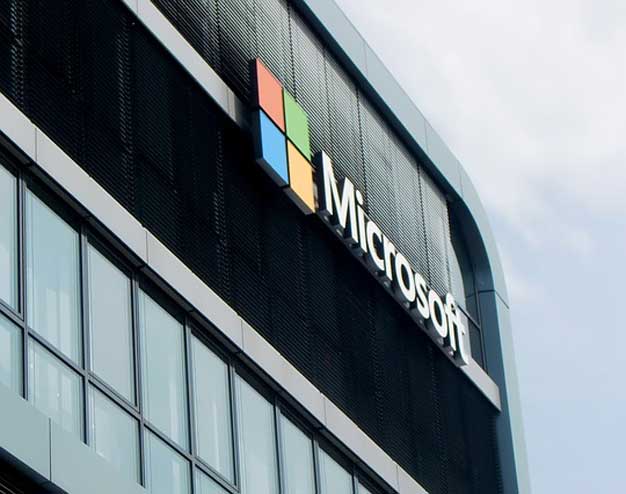Microsoft Posts Strong $32 Billion In Q2 Revenue With Booming Surface And Azure Business
In Microsoft's FY19 Q2 earnings release the company reported a strong end to 2018 with significant double-digit increases in both its revenue and operating income. Several aspects of Microsoft's business contributed to these increases, but the lions share of the growth was contributed by its Azure business.

In a year-over-year look into Microsoft's Azure business, Q4 2018 revenue showed an uptick of 74% over the same time period in 2017. Cloud services in general appear to have performed quite well for Microsoft, and its Chief Financial Officer said that commercial cloud services experienced a 48% growth in revenue that contributed to $9.0 billion to the company's total revenue for the quarter.
"Our solid execution delivered another strong quarter, with commercial cloud revenue growing 48% year-over-year to $9.0 billion," said Amy Hood, executive vice president and CFO for Microsoft. "We continue to make strategic investments to capture expanding market opportunities to drive growth across our business."
Nothing else comes close to matching this level of growth, but there were significant increases in several other areas as well. The revenue growth generated by Microsoft's Surface products was also exceptional with a 39% increase. LinkedIn also performed well during this time period with a 29% increase in revenue, and Microsoft claimed that the service achieved record levels of engagement that was highlighted by a 30% growth of sessions.

"Our strong commercial cloud results reflect our deep and growing partnerships with leading companies in every industry including retail, financial services, and healthcare," said Microsoft CEO Satya Nadella. "We are delivering differentiated value across the cloud and edge as we work to earn customer trust every day."
Microsoft's gaming revenue also increased substantially as well. It appears that hardware sales for the company's Xbox One consoles were not particularly noteworthy, but the software and services offered for these systems showed a 31% uptick over Q4 2017.
All in all, 2018 appears to have been a strong year for Microsoft, but 2019 could be more problematic. At the end of the earnings release the company disclosed a long list of potential challenges that they expect to face during 2019 that may impact the company's finances in the coming year. Most of these concerns appear to be fairly benign, however, and the majority of them are the sort of problems every company is likely to face such as quality and supply problems and risks related to new investments and acquisitions. Though these could become more serious problems, it is likely that Microsoft will perform well throughout 2019 as well.

In a year-over-year look into Microsoft's Azure business, Q4 2018 revenue showed an uptick of 74% over the same time period in 2017. Cloud services in general appear to have performed quite well for Microsoft, and its Chief Financial Officer said that commercial cloud services experienced a 48% growth in revenue that contributed to $9.0 billion to the company's total revenue for the quarter.
"Our solid execution delivered another strong quarter, with commercial cloud revenue growing 48% year-over-year to $9.0 billion," said Amy Hood, executive vice president and CFO for Microsoft. "We continue to make strategic investments to capture expanding market opportunities to drive growth across our business."
Nothing else comes close to matching this level of growth, but there were significant increases in several other areas as well. The revenue growth generated by Microsoft's Surface products was also exceptional with a 39% increase. LinkedIn also performed well during this time period with a 29% increase in revenue, and Microsoft claimed that the service achieved record levels of engagement that was highlighted by a 30% growth of sessions.

"Our strong commercial cloud results reflect our deep and growing partnerships with leading companies in every industry including retail, financial services, and healthcare," said Microsoft CEO Satya Nadella. "We are delivering differentiated value across the cloud and edge as we work to earn customer trust every day."
Microsoft's gaming revenue also increased substantially as well. It appears that hardware sales for the company's Xbox One consoles were not particularly noteworthy, but the software and services offered for these systems showed a 31% uptick over Q4 2017.
All in all, 2018 appears to have been a strong year for Microsoft, but 2019 could be more problematic. At the end of the earnings release the company disclosed a long list of potential challenges that they expect to face during 2019 that may impact the company's finances in the coming year. Most of these concerns appear to be fairly benign, however, and the majority of them are the sort of problems every company is likely to face such as quality and supply problems and risks related to new investments and acquisitions. Though these could become more serious problems, it is likely that Microsoft will perform well throughout 2019 as well.

